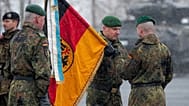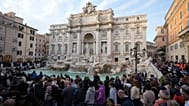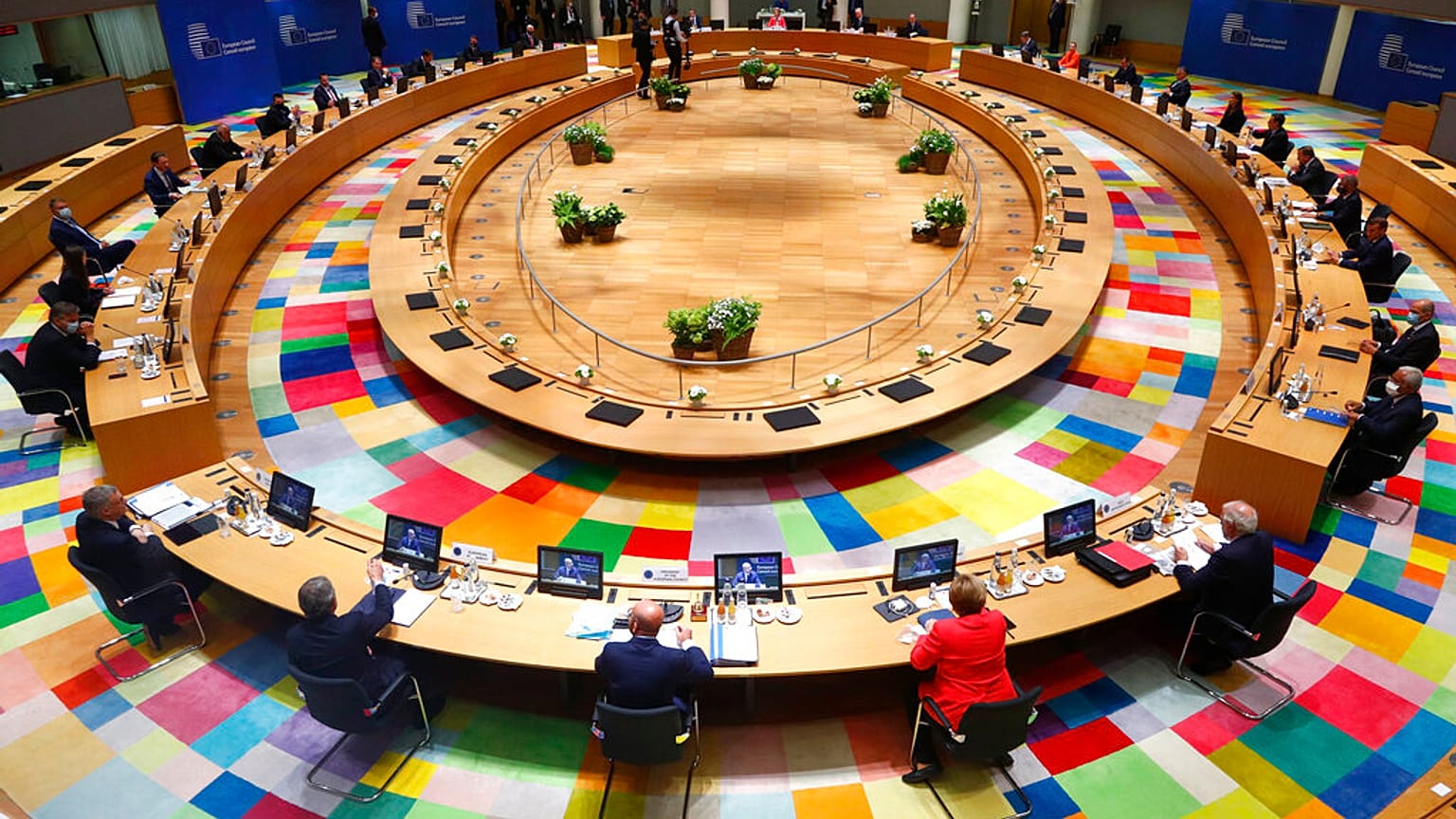Positions still far apart on financing the coronavirus economic recovery, despite a new proposal being tabled.
A new proposal for the post-coronavirus recovery package has so far failed to bridge the gap between EU leaders.
Head of state and government had reconvened to the negotiating table on Saturday morning for a second day after hitting roadblocks on Friday night.
Two hours later, they had moved to a so-called "consultation" phase whereby they meet in smaller groups, after Council President Charles Michel tabled a new proposal in a bid to break the deadlock.
What was initially seen as a good sign for negotiations to continue, has turned into another impasse.
The Italian premier Giuseppe Conte said in a Facebook live that talks were deadlocked. He added that a balance must be struck, and that the answer to the crisis must be 'prompt, solid and robust'.
A Dutch diplomatic source said initially that while there are "many more issues to solve", the proposals are "a serious step in the right direction". It still appears there are many more creases to iron over.
What leaders are negotiating
The 27 leaders — joined by Michel and EU Commission President Ursula von der Leyen — are trying to broker a compromise on the trillion-euro rescue package.
The Commission initially proposed a recovery fund totalling €750 billion and has backed a joint Franco-German motion that most of the money — €500 billion — be dished out as grants to the member states most economically impacted by the COVID-19 pandemic. There is also the trillion-euro EU budget, also known as the Multi-annual Financial Framework (MFF) at stake.
Talks hit the rocks over differences the conditions attached to accessing the money.
Southern member states — Italy and Spain in particular — are in favour of the current proposal but they are opposed by the so-called "Frugal Four" — Austria, Denmark, Sweden, and the Netherlands — which want the amount to be handout out as grants to be reduced and are wary of pooling debt with less solvent countries.
'Fractious' negotiations
Leaving the summit last night, Dutch prime minister Mark Rutte said that the talks had turned "fractious".
Speaking to Euronews' Shona Murray, the Irish prime minister Micheál Martin said about the size and mutualising of debt, "I made the point every country is borrowing at the moment. Ireland will have a €30 billion deficit at the end of the year to meet COVID-19."
He added that Ireland felt the balance between grants and loans is correct because "it's right for this crisis".
The main differences between countries "were in relation to governance but also it relating to the overall size of the package and various interests and looking for different formulae different interpretations of the allocation method for example and so on," Martin said.
More loans and rebates
To address the concerns of the "Frugals", Michel has now proposed to reduce the share of free grants in the recovery fund down from €500 billion, to €450 billion.
The proposal would also increase rebates for the core EU budget to Frugals, Austria, Denmark and Sweden.
The consultation kicked off with leaders of the Frugals convening with their counterparts from France, Germany, Italy, Spain and Portugal and von der Leyen.
This is a clear effort to bridge the gap between the two opposite camps. Greece's Kyriakos Mitsotakis has also joined the meeting.
According to a Dutch diplomatic source whether a compromise is found "will depend on the next 24 hours".
Rule of law
Aside from the size of the fund and how it is spent, there is one other condition that is causing tensions. The proposal to link access to funding to the respect of rule of law. Hungary is threatening to veto the package if the rule of law conditions are attached.
A Dutch source predicts a “showdown” with Hungary's Orban over rule of law. The Netherlands is sticking to the original proposal, and doesn't want talks to fail over the issue.
And while we're waiting
As one group of leaders were locked in intense discussions inside the Council building, others took time out for lunch.
The leaders of Belgium, Luxembourg, Estonia and Malta stopped by local friterie, Maison Antoine.
The chip shop has had other famous clients. German Chancellor Angela Merkel stopped by during another tense EU summit in February 2016, when dealing with negotiations with British Prime Minister David Cameron. The UK leader would go on to announce a referendum on Brexit.















